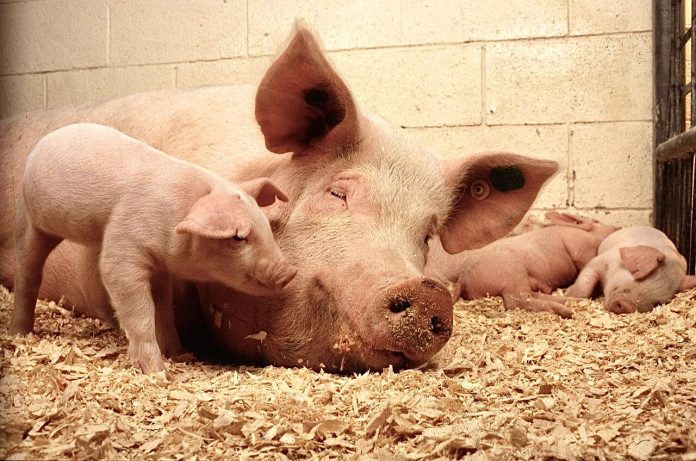
U.S. District Court Rules That Kansas’ Ag-Gag Law Which Bans Undercover Investigations At Slaughterhouses Is Unconstitutional
By Lauren Lewis
You can help all animals and our planet by choosing compassion on your plate and in your glass. #GoVeg
RELATED ARTICLES
Banning Cruelty: New Legislation Aims To Ban Octopus Farming In The U.S.
New bipartisan legislation has just been introduced in the U.S. to ban commercial octopus farming and prohibit imports of farmed octopus from foreign countries.
The...
Outrage In Yellowstone! Grizzly Bear Killed By Wildlife Officials & Left With Head & Paws Cut Off
Photo by: Trisha McFarland / Cowboy State Daily
A photo of a dead grizzly bear with its head and paws cut off has caused an...
Inside Florida’s Illegal Horse Meat Trade: Undercover Footage Shows Racehorse Being Shot & Butchered
A heart-wrenching discovery of illegal horse slaughter has emerged, with video footage exposing the tragic killing of a racehorse named 'Funny Biz,' who was...
Popular stories
News
Smalltail Shark Species Have Declined By 80% In Almost Three Decades; New Petition Seeks To Protect Them Under The Endangered Species Act
Photo by: SEFSC Pascagoula Laboratory; Collection of Brandi Noble, NOAA/NMFS/SEFSC
The Center for Biological Diversity submitted a petition this week urging the National Marine Fisheries Service...
News
U.S. Fish & Wildlife Service Sued For Failing To Protect The Last Seven Wild Red Wolves That Are On The Brink Of Extinction
On behalf of Red Wolf Coalition, Defenders of Wildlife, and Animal Welfare Institute, the Southern Environmental Law Center sued the U.S. Fish and Wildlife...
Rest In Heaven Queen Elizabeth II
Queen Elizabeth II
April 21, 1926 – September 8, 2022
WAN joins the world in mourning the passing of Queen Elizabeth II at Balmoral Castle in...


